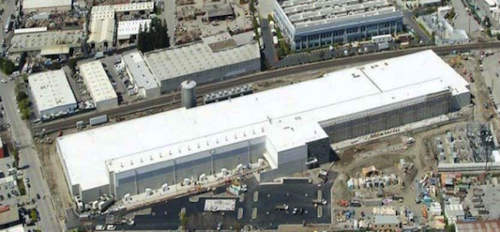As more and more information arises concerning Apple and their seemingly impending marriage to the Cloud, it’s of particular interest that they seem to have begun using yet another new data center, this time in Santa Clara, CA.

The report comes to us from Data Center Knowledge, who says that Apple is set to open the new data center in Q3 of 2011 – that could be in a little a couple of weeks. Although this data center is smaller than the North Carolina data center, it’s still progress, and proof positive that Apple is up to something.
While its unknown exactly what this data center will be used for, cloud storage is a safe presumption, although it also might simply be a buffer for the existing data centers that run iTunes and other current Apple ventures.
It’s suggested that the wholesale data center space model might be convenient for Apple if they’re looking to deploy a new facility quickly in the next few months, “as wholesale space can be delivered more rapidly than building a new data center.” According to Data Center Knowledge, this new lease refers to a 11,000 square feet space, compared to the 500,000 square feet facility in North Carolina.
DFT’s Santa Clara site will be built in two phases, each with 18.2 megawatts of capacity. When it is completed, the building will span 360,000 square feet, with a total of 176,000 square feet of space on a 42-inch raised floor, which allows cooling capacity for high-density server installations.
It’s not clear whether Apple has any expansion options for additional space at the facility. But many of DuPont Fabros’ largest tenants follow a pattern in which they lease space in the first phase of a data center, and later take additional space once the second phase is available.
What’s unclear, once more, is exactly what this center will be used for. What’s absolutely clear is that Apple is certainly ramping up their ability to process and store data by tremendous proportions – I can only imagine what exciting feats of Apple-ocity will soon be in store for us all.
[MacStories, Data Center Knowledge. Image: CNET]


